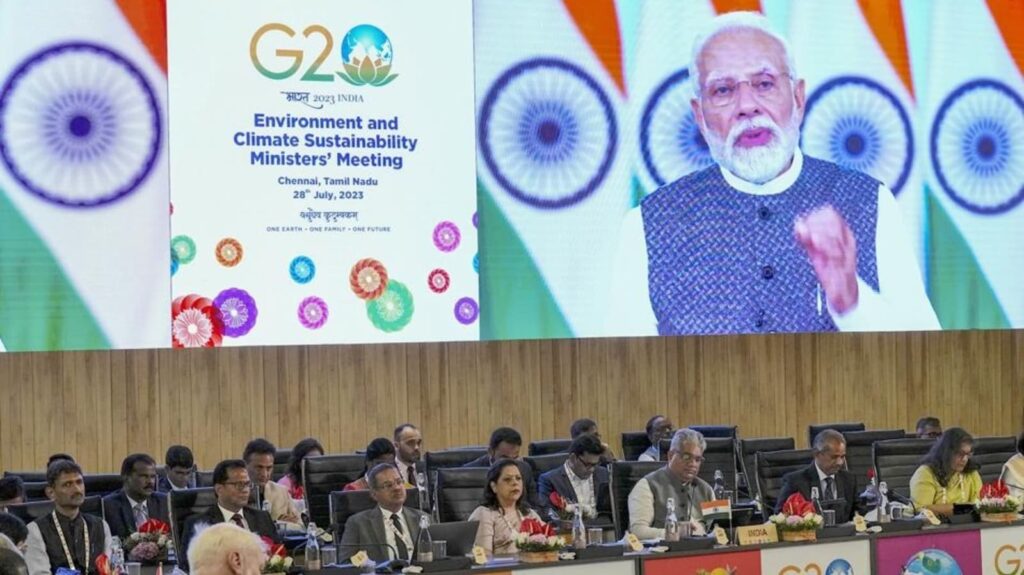The Chennai meeting of the G20 countries last week on climate reached an agreement on 95% of the text, comprising ocean management and biodiversity conservation. But the disagreements were starker. The countries – which contribute 80% of global greenhouse gas (GHG) emissions – were unable to strike a consensus on renewable energy, phasing down fossil fuel use, doubling the global rate of improvement of energy efficiency, and GHG emissions peaking no later than 2025. With the climate and energy ministers of all G20 nations, US special climate envoy John Kerry and COP28 president-designate Sultan Al Jaber in attendance, the expectation was that some progress would be made. That there the needle didn’t move at all is dismaying and should set alarm bells ringing for the upcoming COP28 talks this winter.
Some previous G20 meetings were also deadlocked over the Ukraine war, as China and Russia repeatedly objected to any reference to the conflict in Eurasia in the joint declaration. But the fault lines on display in Chennai were far more important, and more damaging, not only for vulnerable countries but also to the planet. The climate crisis will define the lives of not just future generations but the current ones as well. Despite this looming danger, divisions between developed countries not willing to carry a heavier burden of the sacrifices needed and developing countries insisting on the former acknowledging their historical responsibilities, have only sharpened. This augurs poorly for the upcoming global climate talks and shows that many countries are driven by short-term considerations. COP28 will give these nations another opportunity to ensure that the Paris goals can be met. For now, it’s not looking good.

